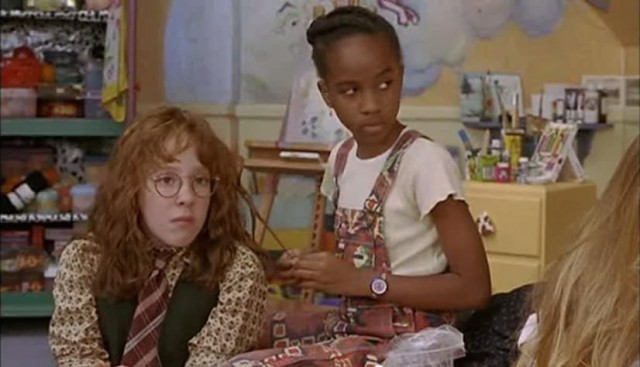How the Baby-Sitters Club Does Money: Jessi

Jessi knows what her students call her. She can tell by the way they look at her, most of them, the ones that don’t take her class seriously.
There are, of course, the ballet girls; the ones who took dance as children and who sign up for Intro to Ballet to fulfill both their P.E. requirement and their sense of nostalgia. Their bodies rarely work as smoothly as they did when they were toddlers or preteens; Jessi watches every semester as the ballet girls try to recapture their childhood dream of becoming ballerinas and realize it isn’t that easy, that dance is hard, that their teacher does not hand out easy As.
Then there are the theater kids, the ones who assume they’ll be famous someday and that Jessi is here, teaching theater movement at this state school, because she failed. Jessi didn’t fail. Her credits are there on her office wall for anyone to see. She was one of only three African-American dancers in the Brailsford Company. She danced Odette/Odile, Coppélia, and was the Arabian dancer in The Nutcracker more times than she cares to count. (A brown-skinned ballerina always gets the Arabian role, never the Sugar Plum Fairy.)
Jessi didn’t fail; she simply got older. Now she’s an assistant professor teaching a 5/5 course load at a state school and making less than she did as a ballet dancer, but she’s in the rural Midwest so she has a home — an actual house with a yard — for herself and her daughter, which was more than she ever had in New York.
Jessi makes sure to reference her late husband in conversations as early as possible, to dispel any thoughts about her being an unwed Black mother. She hates herself for doing this, but knows there are already enough whispers about her being a diversity hire and a professional failure — most of the whispers coming from her students, of all people — so she keeps her wedding ring out and visible and has a family photo prominently displayed on her desk. He had been killed by a drunk driver while Jessi was getting her MFA in dance pedagogy, anxious to propel her family into financial security now that she was aging out of the ballet world.
She never took a hip hop class until she got that MFA — another stereotype dispelled — but now she teaches it to her mostly white students, along with ballet, jazz, modern, theater movement, and dance history. She teaches a special dance class for the football players. She choreographs the musical. She once sat down and figured out her hourly wage, but having the yard and the house and an elementary school close enough for her to walk Tania over nearly every morning is worth it.
The problem is that Tania has discovered ballet, and she’s good, and Jessi’s parents are after her to move out of the middle of nowhere and give Tania her chance. Move back East, or worse: give them Tania for a year, so they can pay for her ballet training and set her on the path to becoming a professional like her mother.
Jessi can’t afford moving back to New York. She can’t stand the thought of giving up her daughter. But Tania has pictures of Misty Copeland all over her walls, and Jessi knows that if she doesn’t make the choice soon her daughter will grow up to be a ballet girl just like the ones she teaches: someone who took a few years of dance as a child and giggles as she awkwardly pliés for college credit.
Jessi watches her daughter dance and holds the house, the yard, the hard-earned savings, and the impossible-to-get academic job in one hand. In the other, she holds grandparents and pre-professional ballet programs and hours spent on the subway and a cramped apartment and the risk of injury and eating disorders and raising Tania in a place where they aren’t the only people of color in a room.
She wishes her husband were there, to help her decide, but knows she will have to decide on her own.
Previously: Mary Anne
Support The Billfold
The Billfold continues to exist thanks to support from our readers. Help us continue to do our work by making a monthly pledge on Patreon or a one-time-only contribution through PayPal.
Comments